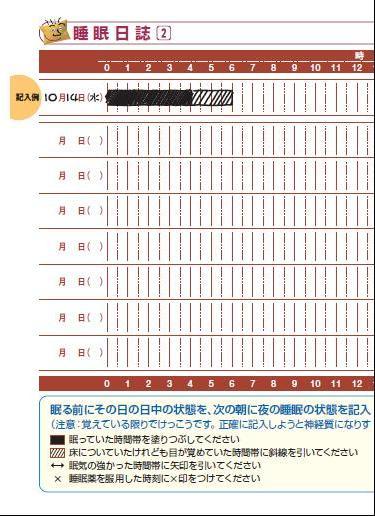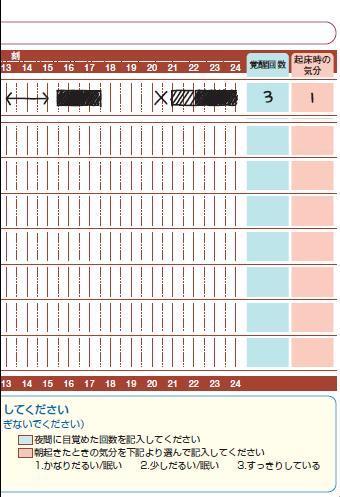How to Be Optimistic 各社の翻訳
アメリカ発の自己啓発系のテクニックが、企業でのメンタル研修にだいぶ入り込んでいるような気がする。
たとえば、こんな感じのもの。直訳して、そこらへんにありそうだ。
How to Be Optimistic
While being skeptical can be a healthy way to avoid getting taken advantage of, being pessimistic - that is, always assuming the worst - can have major negative consequences on your life. Seeing only the negative aspects of any situation can cause you to miss opportunities, neglect problems that need to be solved, and fail to take action that would otherwise improve your relationships and quality of life. If you've always had a pessimistic worldview, it can be difficult to shift your focus, but it is possible to start seeing the glass as half full.
Steps
- Let go of the assumption that the world is against you, or that you were born with a gray cloud over your head. It is an assumption that has no basis in reason or science, and it is also an assumption that many religions do not support. To believe that the universe or a spiritual entity has singled you out and shifted the world order just to make your life miserable is both self-centered and illogical. Be humble and stop pretending you've got the world all figured out. Sometimes bad experiences lead to good experiences, and you can't predict the future, so you can't assume it'll always be bad.
- Look for the source of your pessimism. Deep-rooted negativity can often be traced to childhood experiences, when growing minds observe their circumstances and make presumptions about how the world functions. If all you saw growing up were disappointments, betrayals and failure, it's no surprise that now it's what you expect from the world as an adult. Sometimes we pick up a flair for pessimism from a parent who made negative assumptions about the world somewhere along the line. Either way, the sooner you can attribute your pessimism to a unique set of circumstances rather than the state of the world itself, the easier it'll be to change your perspective.
- Understand that the past does not equal the future. Just because you've experienced pain or disappointment in the past does not guarantee that it's all you'll experience in the future. There were many things in your past that you couldn't control, and everybody comes across unfortunate circumstances at some point in their lives - you're no exception. But there are also many things in life we can control to one degree or another, and therein lies the possibility of change.
- See yourself as a cause, not an effect. You don't have to be a product or a victim of your circumstances. Stop thinking about what is happening to you and start thinking about what you can make happen. If you're not happy with the way your life is now, set goals and move on. Use your past negative experiences to build character and make better decisions, instead of letting pessimism turn you into a coward who avoids risk at all costs.
- Accept pain, failure and disappointment as a part of life, not the entirety of it. Life involves taking many risks every day, and not all of them will end positively. That's what defines risk. But the flip side is that some actions will lead to good results, and it's generally better to have a mixed bag than to have nothing at all. Ideally, the good stuff will outweigh the bad, but you'll never reach that point unless you put yourself out there and hope for the best. When in doubt, remember Alfred Lord Tennyson's words of wisdom:
I hold it true, whate'er befall;
I feel it, when I sorrow most;
'Tis better to have loved and lost
Than never to have loved at all. -
Be thankful. Everyone has something to be grateful for. Make a list of the good things that have happened to you. If nothing instantly springs to mind, you aren't trying hard enough. The key to being an optimist is recognizing the benefits and possibilities of any situation, and understanding that it could always be worse. If all else fails, think of how life could be worse, and flip the thought process to recognize what you do have. For example: "I'm flunking out of school" can turn into "Well, at least I have a chance to go to school, and I still have time to turn my grades around." Get a notebook and a pen, and write down all the good things that you have. Every time you are feeling negative, read through them and remind yourself that it's not all bad.
- Use positive affirmations. Write down short statements that remind you of what you're trying to change about the way you see the world. Put them in places where you'll see them every day, such as on your bathroom mirror, the inside of your locker, on your computer monitor, and even taped to your shower wall. Some affirmations to start with are:
- "Anything is possible."
- "I create my circumstances, my circumstances don't create me."
- "The only thing I can control is my attitude towards life."
- "I always have a choice."
- Remember that life is short. When you feel pessimism clouding your judgment or you start to feel down about the future, remind yourself that every minute counts, and any time spent brooding guarantees nothing but less time to enjoy whatever life might have to offer. At its core, pessimism is impractical because it causes you to spend time dwelling on things that haven't happened yet and aren't guaranteed to happen, and it prevents you from getting things done. Pessimism breeds indecision. It's a waste of time, and time is a limited resource that you can't afford to take for granted.
- Be a balanced optimist. Nobody's suggesting that you become an oblivious Pollyanna, pretending that nothing bad can or ever will happen. Doing so can lead to poor decisions and invites people to take advantage of you. Instead, be a rational optimist who takes the good with the bad, in hopes of the good ultimately outweighing the bad, and with the understanding that being pessimistic about everything accomplishes nothing. Prepare for the worst but hope for the best - the former makes you sensible, and the latter makes you an optimist.
*****
「翻訳」で検索すると、各社の翻訳サービスが出てきます。
コピーアンドペーストして試してみましょう。
Yahoo の翻訳は、特色があります。原文と訳文が比較対照できて、
マウスを載せると対応する言葉がハイライトされます。
また
http://www.kotoba.ne.jp/
このサイトはとても役に立ちます。
http://www.weblio.jp/
ここも有名。
ライフサイエンス系の言葉は、ライフサイエンス辞書Plus 2007 for ATOK が
充実していると思いますが、
その元になっているのが、
http://lsd.pharm.kyoto-u.ac.jp/ja/service/weblsd/index.html
です。ここも便利。
個人的には MED-Transer という医学英語翻訳専用ソフトがありまして、
概略を把握したいときに便利に使っています。
最近は秘書さんにラインマーカーで要点に色をつけてもらっています。
レストレスレッグス症候群(restless legs syndrome:RLS) むずむず足症候群
レストレスレッグス症候群(restless legs syndrome:RLS):むずむず足症候群。
睡眠中に周期性四肢運動(periodic limb movement:PLM)と呼ばれる足関節の不随意性の背屈運動を,約80%の患者で伴う。このため、RLS患者は,主に睡眠障害を主訴として受診することが多い。
簡単に言うと、足がむずむずして眠れない。
睡眠不足の結果として、日中の疲労感、傾眠、焦燥感、不安、抑うつ、困惑などがみられる。さらに、家庭や職場でのパフォーマンスが低下し、評価が下がることがある。長時間座っていられないこともある。
米国における有病率は10%前後と推定されており、RLSの発症年齢は、20歳以下の若年層における初発が全体の45%近くにおよび,その後加齢とともに漸減する傾向がみられる。一方、51歳以上69歳以下の層でも15%以上と高い値を示し、二峰性を示す。
特発性RLSにおいては,遺伝的要因が明確に関与していると思われる例が全例の40%以上を占め,関与が疑われる例を含めると半数以上に達する。
RLSと鉄欠乏との関連についてはよく知られているが、RLS患者の血漿中の鉄濃度やフェリチン濃度は正常であることが多い。しかし、CSF中のフェリチンおよびトランスフェリン濃度を調べてみると、鉄欠乏が示唆される。
中枢ドーパミン機能障害が関与している可能性が高い。RLSと中枢ドーパミン機能については、ドーパミン療法がRLSに奏効する点、パーキンソン病とRLSの合併が多く認められる点、PETによる観察により、D2受容体、尾状核、被殻においてドーパミン結合の低下が認められる点などから、両者が密接に関連することが示唆されている。また、鉄はドーパミン合成の律速酵素であるチロシンヒドロキシラーゼの補因子であるため、鉄とドーパミンの相互作用がRLSに関与している可能性もある。
RLSの診断にあたっては、病歴を確認し投薬歴についても聴取する必要がある。神経学的診断に関しては、特発性RLSでは特異性のある異常所見がないある場合もあり、注意が必要である。
RLSは比較的診断のつきやすい疾患であり,治療も奏効することが多いため,患者の早期発見に努めることが重要である。
不眠といっても、睡眠導入剤だけでは解決しない例。
*****
治療については、大きく分けて、ベンゾジアゼピン系、ドーパミン系、抗てんかん系、さらに文献によれば、高血圧の薬、たとえばインデラル、抗うつ剤、たとえば、SSRI、四環系、三環系などがある。
従って、まずランドセン。ベンゾジアゼピン系で眠くもなり、抗てんかん作用もあるので合理的と解釈しているが、本当の作用機序は不明。
ドーパミン系ならばビ・シフロール。これもメカニズムは不明。鉄剤たとえばフェロミアを加えるのもトライする価値はあるかもしれない。
インデラル、ジェイゾロフト、デジレル、トリプタノールなどは、これらを使うまでもなく、解決したので、経験がない。
局所多汗症 朝日新聞15日
局所多汗症の記事。
心療内科には精神性発汗の方がいらっしゃいます。
以前担当していたのはピアニストさん。
手のひらに汗をかいてしまうので、練習中にピアノの鍵盤が汗で濡れてしまいます。
生徒さんのレッスンのときにも、汗が出て、うまく行きません。
そんなことを思い出していました。
アトモキセチン
この薬は米国で2003年1月、小児・思春期(6歳以上18歳未満)、および成人(18歳以上)のADHDの適応で発売した。現在は74カ国で承認。18歳以上については25カ国で承認されている。 (NIKKEI)
*****
アトモキセチンはノルアドレナリン再取り込み阻害剤。
トレドミンに似た部分もあるといわれる。
3年ぐらい前に米国で発売され、使用されている。
ADHD(注意欠陥多動障害)は子供の頃の話で、大人になると多動成分は消えることが多く、
ADDまたはAD(いずれも注意欠陥障害)と呼ぶ。
ストレスと不眠
ストレスだらけの現代社会を生きるビジネスマンにとって、睡眠の質は重要です。
良い睡眠は心身の疲れを取り明日への活力を生み出します。
しかし最近、質の良い睡眠を十分に取っていない人が増えています。
現代では5人に1人が睡眠についての悩みを抱えています。
「寝付きが悪い」
「夜中に何度も目が醒めてしまう」
「夢をたくさん見て、寝た気がしない」
「明け方に目が覚めて、新聞配達の音を聞いていた」
「しっかり寝たはずなのに朝疲れが残っている」
「昼間、眠気が残る」
などの症状に心当たりのある人も多いでしょう。
といった具合に不眠の話は始まりますが、
現代人は睡眠を削って、仕事、付き合い、趣味、その他に
励んでいるわけですから、仕方がないのです。
せめて短い時間をぐっすり深く眠りましょう。
テンプスタッフ、医師の開業支援・オリックスと組む
テンプスタッフ、医師の開業支援・オリックスと組む
人材サービスのテンプスタッフはオリックスと組み、9月から医師の開業を支援する事業に乗り出す。物件探しから資金調達、職員の採用、開業後の経営指導まで一括して請け負う。労働環境が過酷な勤務医を辞めて開業する医師が増えており、診療所の開設数は増加傾向にある。勤務医としての業務と並行しながらの開業準備は負担が大きいため、一括代行の需要は大きいとみている。
子会社のテンプスタッフ・メディカライズ(東京・渋谷)が看護師など職員の採用や研修、全体のコンサルティングを提供。オリックスが資金調達や物件の選定、医療機器のレンタルなどを担当する。
[2007年8月31日/日本経済新聞 朝刊]
*****
そうかな?
国家公務員、「激務」や「いじめ」
国家公務員、「激務」や「いじめ」の苦情相談高止まり
2006年度に国家公務員が人事院に寄せた仕事上の悩みや苦情の相談件数は1227件で、過去最多だった前年度より95件減ったものの依然高止まりしていることが14日、分かった。
人事院は「定員削減や情報技術(IT)化の進展で仕事のやり方が急激に変化し、職員にゆとりがなくなっているのでは」と分析している。
06年度の新規相談は713件。内訳は、休暇が取れないなどの勤務条件関係が169件(23.7%)、配置換えなど人事関係が161件(22.6%)、いじめや嫌がらせが109件(15.3%)など。セクハラ(性的嫌がらせ)も31件(4.3%)あった。
内容は「同じ職場の職員が飲み会になると体に触ってくる」「上司から『おまえのやり方が悪い』などと大声で罵詈雑言を浴びせられる」など。
省庁別の新規相談件数では、法務省が119件で最多。次いで国土交通省107件、厚生労働省99件の順だった。〔共同〕
*****
実際、そのようです。
パワハラで自殺「労災」 上司発言でうつ病
パワハラで自殺「労災」 東京地裁初の認定、上司発言でうつ病
2007年10月16日 中日新聞 朝刊
医薬品販売会社「日研化学」(現・興和創薬、東京)の営業担当社員の男性=当時(35)=が自殺したのは、上司からの暴言や叱責(しっせき)などのパワーハラスメント(職権を背景とした嫌がらせ)でうつ病になったことが原因として、妻が、労災と認めなかった静岡労働基準監督署の処分取り消しを求めた訴訟の判決で、東京地裁は十五日、自殺をパワハラによる労災と認め、処分を取り消した。
原告側代理人の川人博弁護士によると、自殺の原因が長時間労働とパワハラの双方にあるとして、労災を認めたケースはあったが、パワハラを主な原因として、労災認定した判決は初めて。
渡辺弘裁判長は判決理由で、「上司の発言は『存在が目障りだ』『肩にフケがベターと付いている』などとキャリアや人格までも否定する内容だった」と指摘。「過度に厳しく、嫌悪の感情も含まれ、通常想定される『上司とのトラブル』を大きく超える心理的負荷があった」と認めた。
国側は「上司としての指導や助言で、パワハラではなく、自殺との因果関係もない」と反論していた。 判決によると、男性は一九九〇年に入社。九七年から名古屋支店静岡営業所に所属し、静岡県東部で営業を担当していたが、二〇〇二年に赴任した係長から「お願いだから消えてくれ」「会社を食い物にしている」と言われたり、営業がうまくいかなかった際には「おまえは対人恐怖症やろ」などと言われた。忘年会の席上でも「給料泥棒」と叱責され、度重なるパワハラを受け、同年末ごろにうつ病となり、翌〇三年三月、自殺した。
*****
いたましく、かつ、むつかしい問題です。
レコーディング 睡眠日誌の実例
眠れない人がいる。
どうして眠れないんだろう。
どうしたら眠れるんだろう。
そんなときはまず、レコーディング。
睡眠日誌をつける。
一ページに時間軸を一本引く。
そして、ベッドに入った時間、実際に寝た時間、ベッドから出た時間、
途中で目が覚めたらそれも記録、
夢でうなされたらそれも記録、
昼寝も記録、
アルコールも記録、
隣の人のいびきも記録、
朝起きたときの気分も記録、
関係のありそうなことは全部書く。
その後で何かパターンがないか、
考えてみる。
土日で睡眠リズムが崩れているとか。
生理前にリズムが崩れるとか。
仕事が立て込んでくると寝つきが悪いとか。
寝る前にゲームをしているとか。
その上で、必要なら、お医者さんに行って相談。
そのときも、睡眠日誌を持って行けばいい。
話が早い。
というわけで、下がその実例。
この書き方だと、睡眠の時間帯が、一週間でどのように変化しているのか、
分かりやすい。








